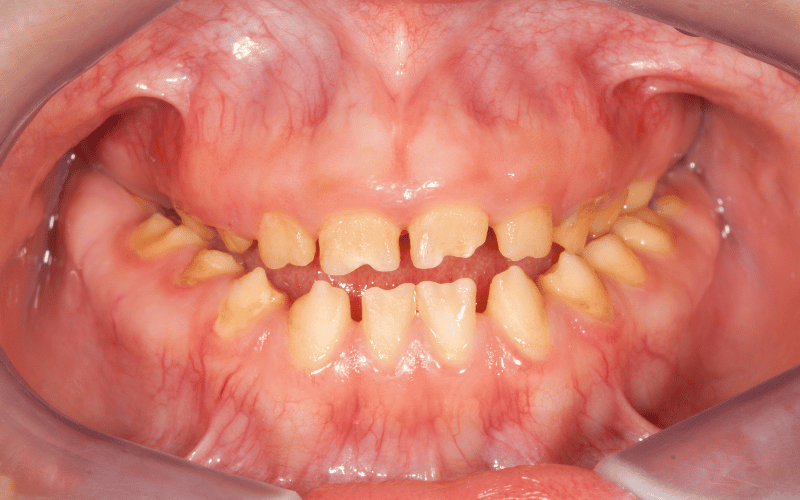Introduction
In today’s vast realm of dental health, some conditions escape the limelight, remaining largely unknown to the general population. Amelogenesis imperfecta is one such disorder. A genetic condition, it primarily affects tooth enamel. Yet, despite its relative obscurity, its impact on those who have it is profound. Recognizing the symptoms becomes the first crucial step for early diagnosis and treatment, paving the way for a significantly better quality of life.

The term ‘amelogenesis’ refers to the formation of tooth enamel. ‘Imperfecta’ implies an inherent flaw in this process. As enamel is our teeth’s first line of defense, any disorder affecting it can have a domino effect on overall dental health. Teeth become susceptible to external agents and prone to other complications. Hence, a deeper understanding of this condition not only sheds light on its intricacies but also underscores the importance of timely interventions.
With amelogenesis imperfecta, the signs often go unnoticed or get mistaken for other dental issues. By diving into the 10 major symptoms, we aim to equip readers with the necessary information to identify and act on this condition early. This isn’t just about dental health but enhancing the overall quality of life for those affected.
Symptom 1: Brittle Teeth

When one thinks of teeth, strength and resilience often come to mind. However, for those diagnosed with amelogenesis imperfecta, this might not be the case. The condition brings about a certain brittleness to the teeth. The primary function of enamel is to protect. When amelogenesis imperfecta comes into play, this enamel doesn’t form correctly.
Imagine a fortress with a weakened wall; it’s more susceptible to invasions. Similarly, teeth with improperly formed enamel can break, chip, or crack easily. Everyday activities like biting into an apple or chewing meat can become precarious tasks. Furthermore, this brittleness isn’t a consequence of external factors like sugar consumption or neglect but arises from inherent genetic factors.
Such vulnerability can profoundly affect one’s confidence and lifestyle. The fear of breaking or chipping a tooth might limit one’s dietary choices or even social interactions. Moreover, with weakened teeth, there’s an increased dependency on dental interventions, which can be both time-consuming and costly.(1)